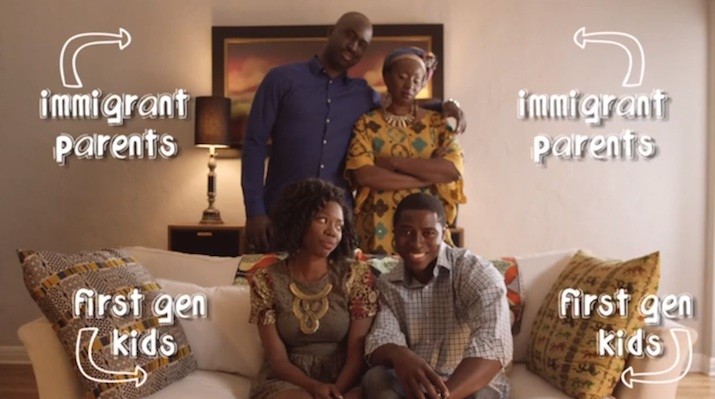It is disconcerting to see that Nigerians in the diaspora are beginning to segregate themselves more and more along tribal lines.
“There was a time when running into fellow Nigerians in the United States elicit untold euphoria in us. It doesn’t matter then what tribal group that person identify with. It might sound crazy to you guys these days but back then we went as far as searching phone directories to look up Nigerian names and just call to introduce ourselves as fellow Nigerians.”
Those were the words of a fatherly-looking Nigerian who has lived in the United States since the late 1970s.
Younger Nigerians in the diaspora might find it rather unbelievable that such a time ever existed. Today, Nigerians are literally found in every nook and cranny of the United States (as in most places around the world!). Nowadays, it is not uncommon to find Nigerians as next door neighbors in bigger cities across the United States.
With the large number of Nigerians around come more choices of friendship, church attendance, social groups and marriage. Incontrovertibly, the experience of Nigerians in the diaspora today is a far cry from the 1970s.
These days, there are Nigerians in the United States that won’t attend a particular Church not because of doctrinal issues but because the Church has a predominant tribal group that they are biased against.
What is even more troubling and worrisome is the increasing rate of marital tribal sentiments in the Nigerian diasporas community especially (sad to say) among the Yorubas and Igbos.
In the last several months, I have had the opportunity to relate with these demographic in various professional, religious and social settings in the Southwest region of the United States. Most of them are young and educated with good-paying careers; living what Americans will call the “middle class” lives.
It is mind-boggling to see the sheer number of these Nigerian young adults of marriageable age who are still single (running into their mid and late 30s) and can’t seem to find someone that meet “all their criteria”. In my opinion, it is not because there aren’t enough eligible Nigerians around but (shamefully so) for the most part because of their tribal sentiments.
Even though I am well informed about the Nigeria-Biafra war and the purported betrayal of the Igbos by their Yoruba counterparts, it wasn’t until recently that I realized how naïve I was about this unspoken deep-seated gripe (should I say “hatred” or unresolved historical distrust) between the two groups.
My naivety also stemmed from the fact that while growing up in Benin City, there were fewer fixations on tribal sentiments and as such, inter-tribal mingling was not uncommon.
As a result, I was totally flummoxed when a 33-year old Nigerian Igbo lady in the diaspora “desperately” looking to get married said unequivocally that “….maybe other tribes but I no fit marry Yoruba person for my life. My parents no go even sanction am”. At first I thought she was joking. As I pressed a little further to understand her reservations, it became apparent that her mind had been influenced to see the Yorubas in a certain light.
Some young Nigerian men in the diaspora are also beginning to take a page out of the tribal sentiments narrative in their spousal decision making process. Lately, I have met several guys insinuating that Igbo ladies are a “marriage no-go-area” because according to one, “Igbo families and women too like money and they see marriage as a business venture”.
Obviously, not only the Yoruba and Igbo folks that might be caught up in the tribal mawkish sentimentalities; however, these are the majority tribes within the Nigerian circle that one frequently interacts with.
What is ironic is the fact that some of these young folks have lived outside of Nigeria for most of their lives and yet harbor these prejudices. It leaves one to wonder where they got these preconceptions from. At the risk of playing the blame game, I am tempted to think that the parents (home or abroad) of these young folks might be instrumental in inculcating these tribal prejudices into their children.
It is understandable that humans tend to gravitate towards those that look and speak like them and everyone has freedom to worship wherever they like or get married to whomever they choose.
Also, there is no doubt that there are thousands of Nigerian inter-tribal marriages and tribally diverse church congregations all over the United States. But when increasing number of Nigerian diasporas now prefer to delay marriage and child bearing until they find someone from their tribe or unwilling to fellowship in a particular church because it is a “Yoruba church”, “Igbo Church” or “Edo Church”, then we have some issues in our hands to deal with.
Although my current experience is localized in a particular part of the United States, it will be interesting to know if this is a trend in other parts of the country/world. Time will tell. What do you think? Let me know your thoughts.
God bless Nigerians and may God bless the Federal Republic of Nigeria.
Blog @ www.diasporascope.com







